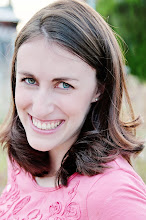Some of you may know that my first completed manuscript was YA fantasy. It was also REALLY bad.
Just a few days after I "finished" it, I got the idea for a middle grade story. I'd never written middle grade. I hadn't read much middle grade since I was in elementary school and junior high. I had no idea what my middle grade voice should sound like. But I knew I couldn't query my first novel (because it sucked) and this new idea felt exciting and fresh, so I changed genres and transitioned from a world filled of anxsty teens and fairies into a world of happy-go-lucky real world sixth graders.
It was scary at first. I had no idea what I was doing. But as I wrote, I learned. And as I rewrote, I learned more. The voice came easier than it had with my attempt at YA. In the end I had a manuscript I felt confident enough about to start querying agents.
I've been thinking a lot about genre changing recently. I'm not planning a change anytime soon, MG is still a happy place for me, but it seems like a lot of blog friends have been reinventing their writing and several of the agents and editors at SCBWI talked about how it can be beneficial to diversify what we write.
So I wanted to share with you three good reasons to write something different.
1. A different genre may be more salable.
It seems like a lot of people decide to write because they fall in love with a super popular book and they think, "maybe I could do that." I think this is a great reason to start writing--a love of reading spills over into a love of writing. But if you decide to write YA paranormal because you loved TWILIGHT, you are going to have a lot of competition if you decide to pursue publication.
People don't talk about it much, but there are areas of publishing that are super saturated. Getting a book published in one of those genres may be harder than a less popular one. I don't know what the least competitive markets are (I bet agents and editors may have a clue though), but I do know that way fewer people write MG than YA.
That's something to think about.
2. You may be better at writing something else.
I started writing YA fantasy because it was one of my favorite genres to read. Unfortunately, loving to read something doesn't always translate to being good at writing it. I can tell you without a doubt that I am a better MG writer than fantasy writer, but I never would have discovered that if I hadn't tried to write MG.
3. Changing genres keeps things interesting.
Do you ever feel bogged down with your writing? Does it ever feel boring? Maybe a new genre is just what you need. Writing romance is WAY different than writing picture books, and writing middle grade is a huge departure from writing grown up thrillers, (have you seen the news about
John Grisham's latest project?) Switching genres may give your writing new energy and make it exciting again.
So there you have it. There's a lot out there about the need to brand yourself, to stick to your genre and build your reputation on it, but maybe there's some good to be said for occasionally reinventing your writing.
So what do you think? Would you ever consider leaving your genre behind and trying something totally new?








